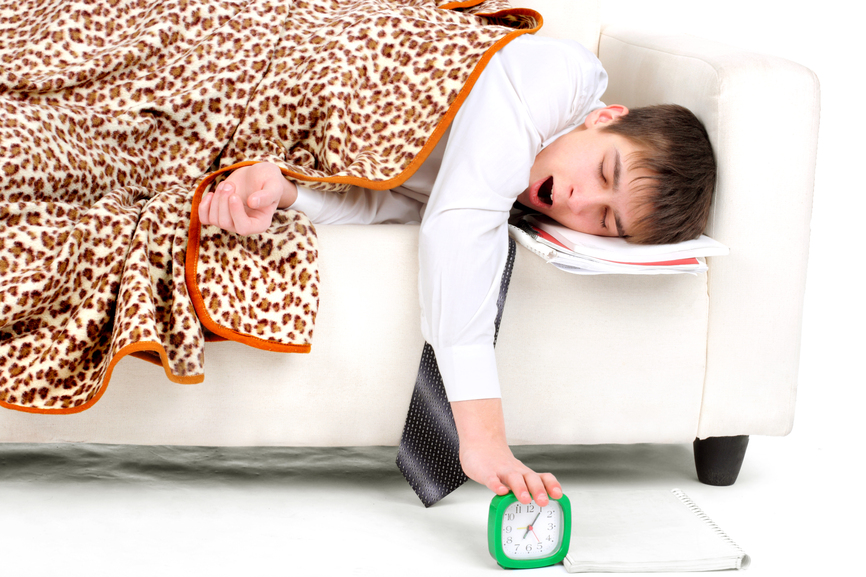New findings on sleep requirements
By Liz Lockhart
The guidelines which are currently in place in the U.S. for the amount of sleep required for high school students is nine hours per night. A  new study suggests that this sleep requirement is inaccurate and suggests that 16-18 year olds perform better academically when they have only seven hours.
new study suggests that this sleep requirement is inaccurate and suggests that 16-18 year olds perform better academically when they have only seven hours.
The study lead author, Eric Eide of Brigham Young University (BYU), says ‘We’re not talking about sleep deprivation. The data simply says that seven hours is optimal at that age.’
Eide and colleague Mark Showalter, also from BYU, are conducting a series of studies to examine sleep and the impact it has on our health and education. The current guidelines are founded on studies where teenagers were simply told to remain sleeping until they felt satisfied.
‘If you used that same approach for a guideline on how much people should eat, you would put them in a well-stocked pantry and just watch how much they ate until they felt satisfied. Somehow that doesn’t seem right,’ said Showalter.
In this study, Brigham Young University researchers set out to connect sleep to a measure of performance or productivity. They analysed data from a representative sample of 1,724 primary and secondary school students across the U.S. They discovered a strong link between the amount of sleep youths got and how they performed in standardised tests. They suggest that the optimum amount of sleep required depends on age as follows:
- 10-year-olds require 9-9.5 hours
- 12-year-olds require 8-8.5 hours
- 16-year-oldls require 7 hours
‘We don’t look at it just from a ‘your kid might be sleeping too much’ perspective. From the other end, if a kid is only getting 5.5 hours of sleep a night because he’s over-scheduled, he would perform better if he got 90 minutes more each night,’ said Eide.
A number of factors determine the size of the effect on test scores. The researchers suggest that an 80-minute shift toward the optimum is comparable to the child’s parents completing about one more year of schooling. ‘Most of our students at BYU, especially those that took early-morning seminary classes in high school, are going to realise that 9 hours of sleep isn’t what the top students do,’ concluded Showalter.
The study findings are published in the Eastern Economics Journal.





